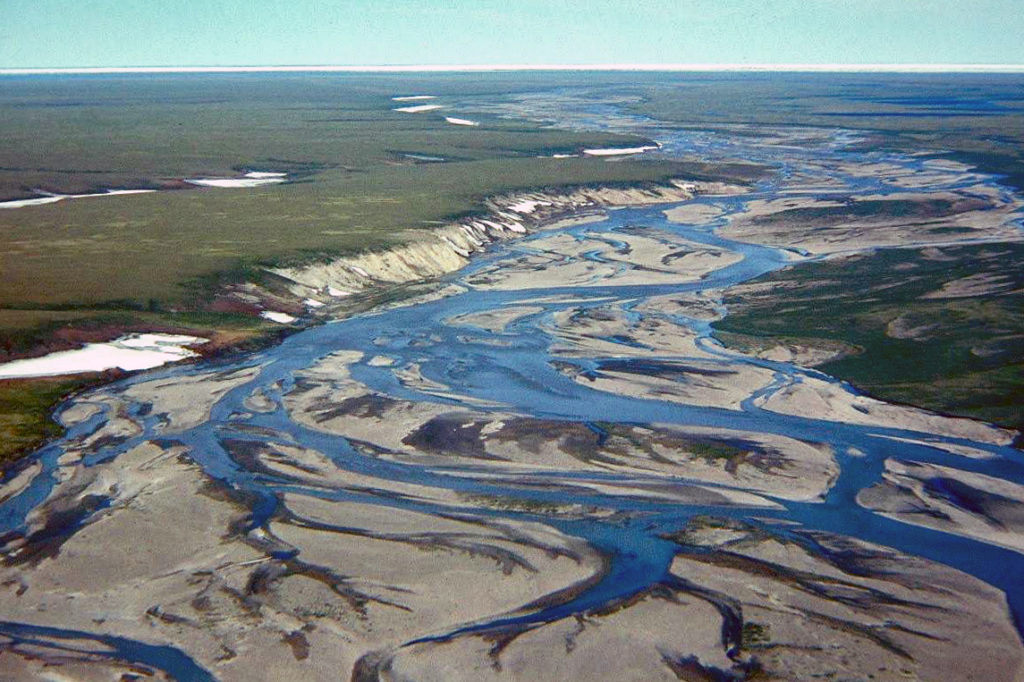Arctic Refuge oil program, in legal limbo, targeted for repeal in budget bill
A new budget bill introduced in the U.S. House seeks to repeal the ANWR oil and gas program, cancel leases and return payments.

The Republican-led Congressional act that in 2017 opened up the Arctic National Wildlife Refuge to oil leasing would be reversed by a new budget bill introduced in the Democratic-led U.S. House.
A $30 billion Interior funding package introduced Tuesday by the House Resources Committee, chaired by Democratic Rep. Raul Grijalva of Arizona, includes a provision that would repeal the ANWR oil and gas program, cancel leases already issued under it and return payments to leases.
The requirement for leasing had been inserted into the 2017 tax overhaul passed by the then-Republican-majority Congress, also as a reconciliation bill. The new funding legislation is also a reconciliation bill. Such bills can be passed with simple majorities in the Senate, thus protecting them from filibusters.
Opponents of oil development praised the new funding bill.
“On behalf of the Gwich’in Nation of Alaska and Canada, we support reconciliation language that would repeal the failed Arctic Refuge oil and gas program and restore protections for Iizhik Gwats’an Gwandaii Goodlit, the sacred place where life begins, our sacred lands in the Arctic National Wildlife Refuge coastal plain,” Bernadette Demientieff, executive director of the Gwich’in Steering Committee, said in a statement.
She noted that thanks to a campaign by the Gwich’in and their allies, major financial institutions and insurance companies have adopted policies forbidding any backing of drilling projects in the refuge. “These institutions understand that drilling on the coastal plain is bad business that brings unnecessary reputational, legal and financial risk,” she said. “We call on Congress to push forward and get this done. Our identity is non-negotiable and our culture is not for sale.”
[Alaska’s governor wants the state to cut ties with banks who shun Arctic oil drilling]
The ANWR leases sold by the Trump administration remain in limbo.
All action on the leases auctioned off on Jan. 6 has been suspended — first, by an Inauguration Day order issued by President Biden and subsequently, by a secretarial order that launched a new review of oil development’s potential environmental impacts.
The June 1 order by Interior Secretary Deb Haaland triggered a supplemental environmental impact statement announced on Aug. 3 by the Bureau of Land Management. Critics of oil development, including all levels of government in Canada, claimed the pre-sale environmental studies conducted by the Trump administration were flawed.
The suspension of ANWR exploration work apparently includes any consideration of seismic surveys in the refuge’s coastal plain. An Interior Department representative said work will not proceed on seismic permitting during the supplemental EIS process, confirming a story reported earlier in the week by Politico.
The Alaska Industrial Development and Export Authority, which received seven of the nine ANWR leases awarded after the Jan. 6 sale, is moving on a plan to start a seismic survey as early as 2022. In June, the AIDEA board authorized spending up to $1.5 million on work to prepare for a seismic program; in early August, it announced its selection of contractors for the project.
If the permitting for the seismic program cannot happen before the supplemental EIS process is completed, that could put the two coming winters out of reach.
“We have two years to issue a Record of Decision once the Notice of Intent is published. That would put a ROD at August 2023,” Lesli Ellis-Wouters, a spokeswoman for the BLM in Alaska, said by email.
Action blocking oil development in the refuge could also come from a federal court.
The four pending lawsuits that are challenging the Trump-era leasing program remain on hold while the Biden administration considers its options. The Biden administration said in a June 11 status report that it and the defendants will file a follow-up joint status report “advising the Court what further proceedings may be necessary,” or alternatively, file separate reports laying out proposals for future action.
U.S. District Court Judge Sharon Gleason has given the parties until Sept. 9 to file that report or reports.
The story was updated with information from the Bureau of Land Management about the potential length of the supplemental environmental impact statement process.